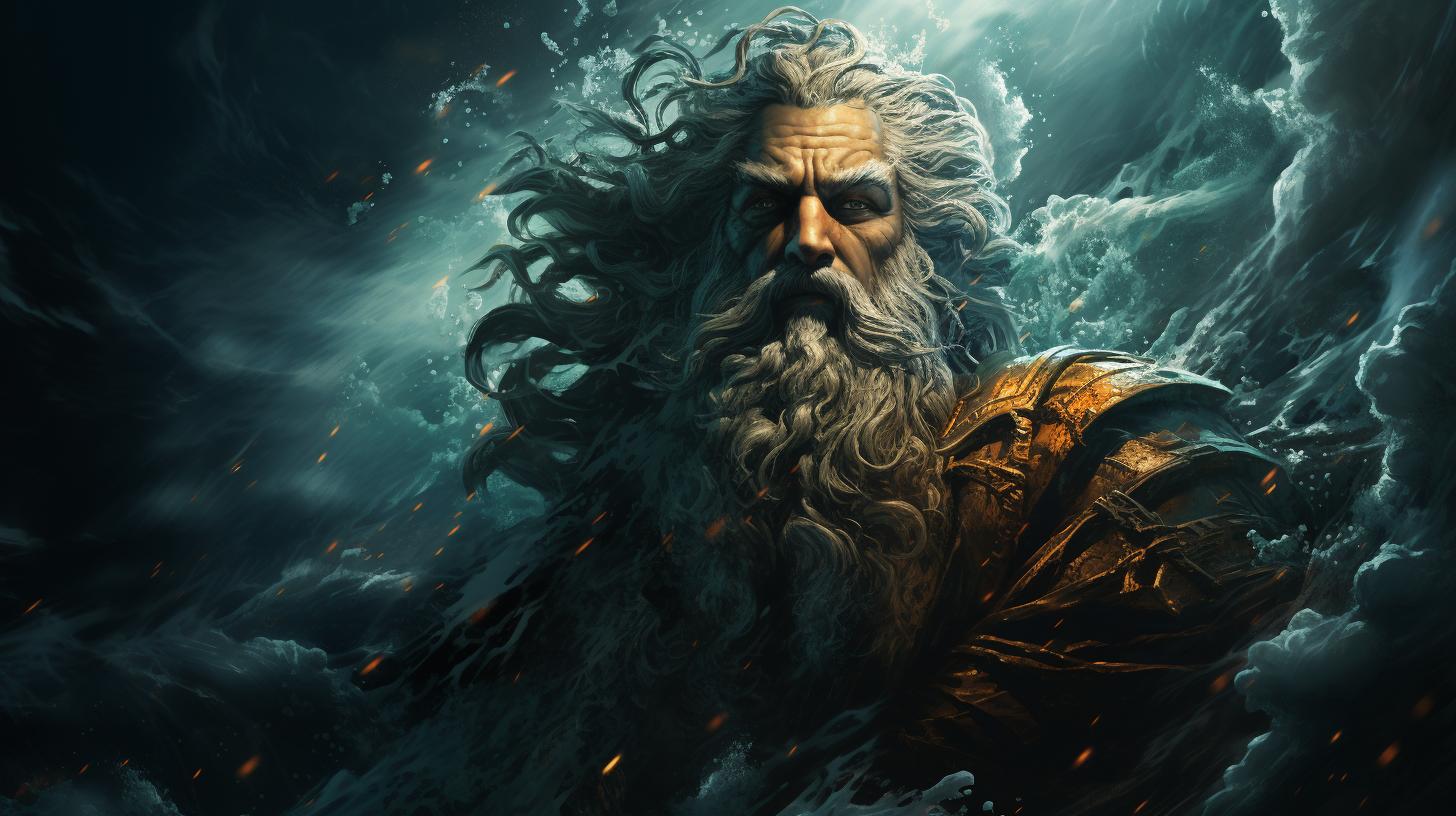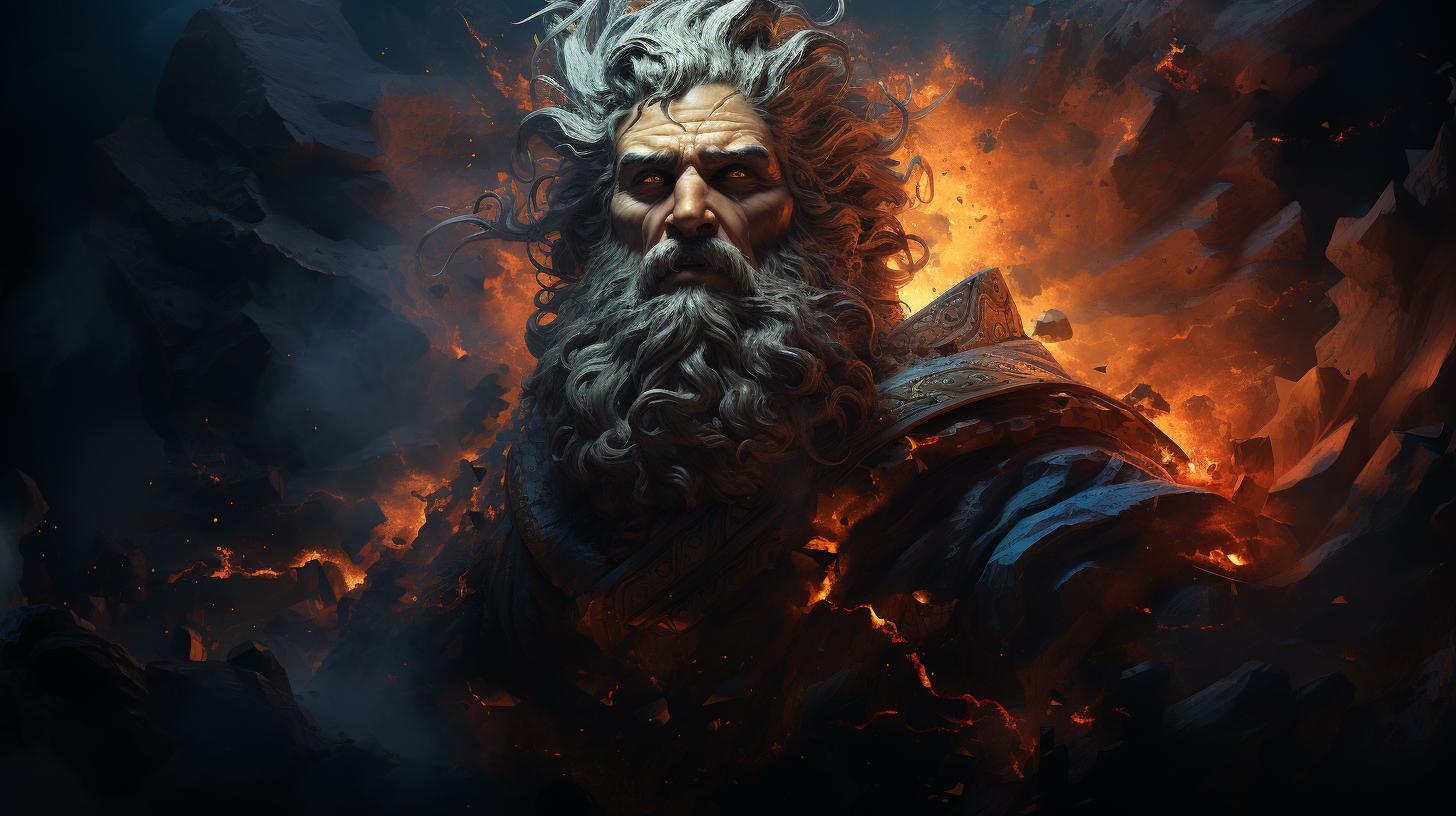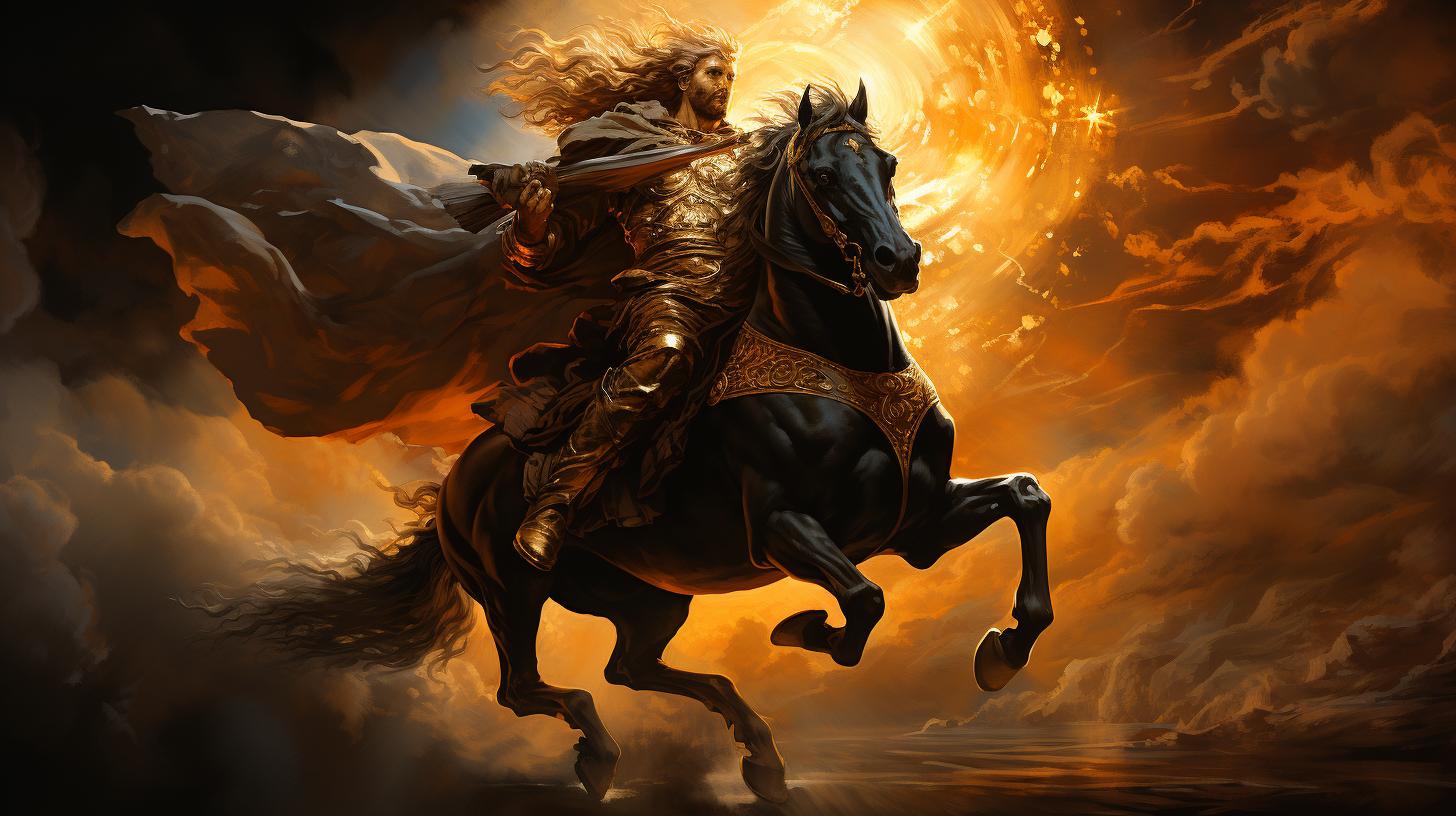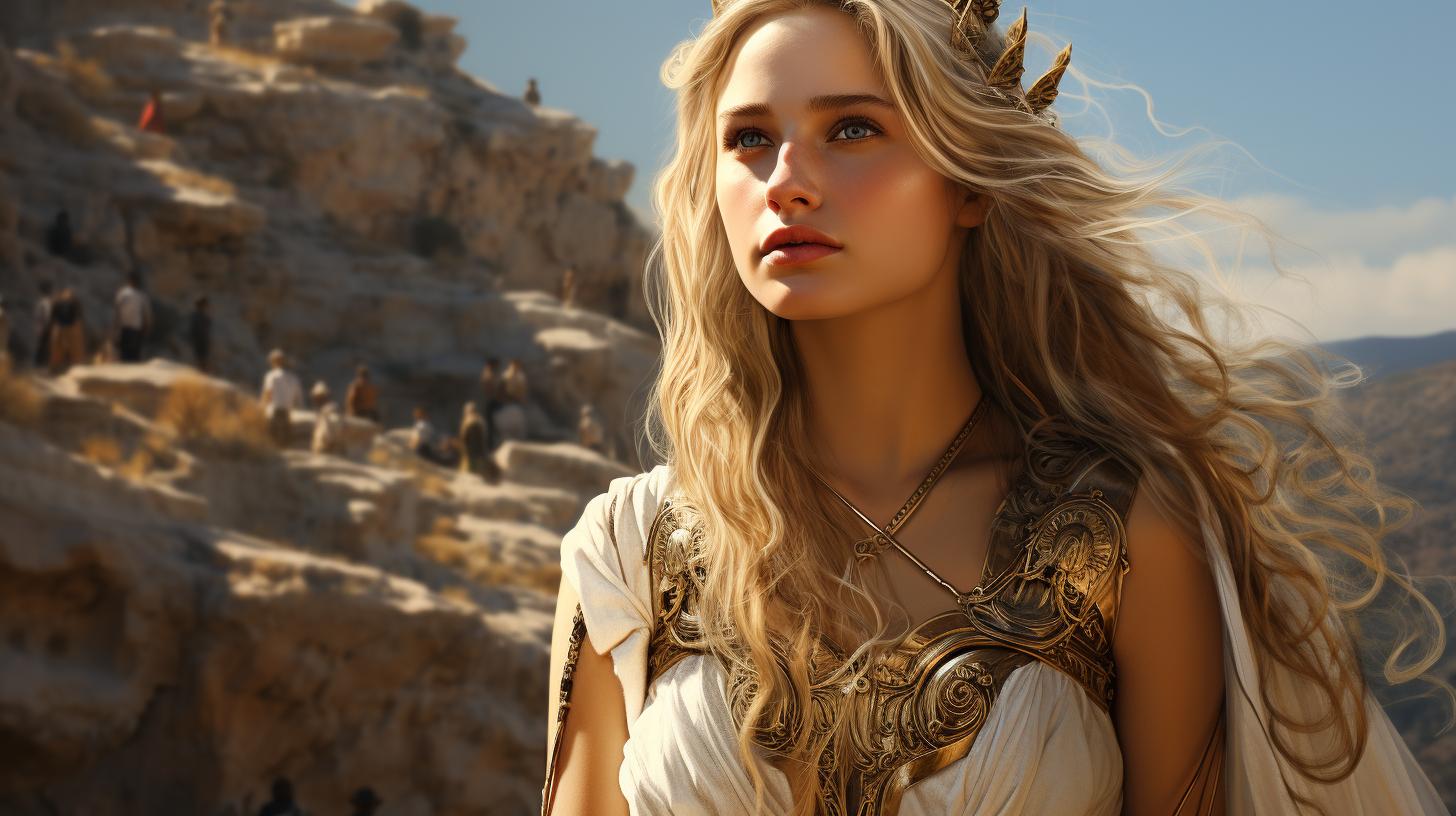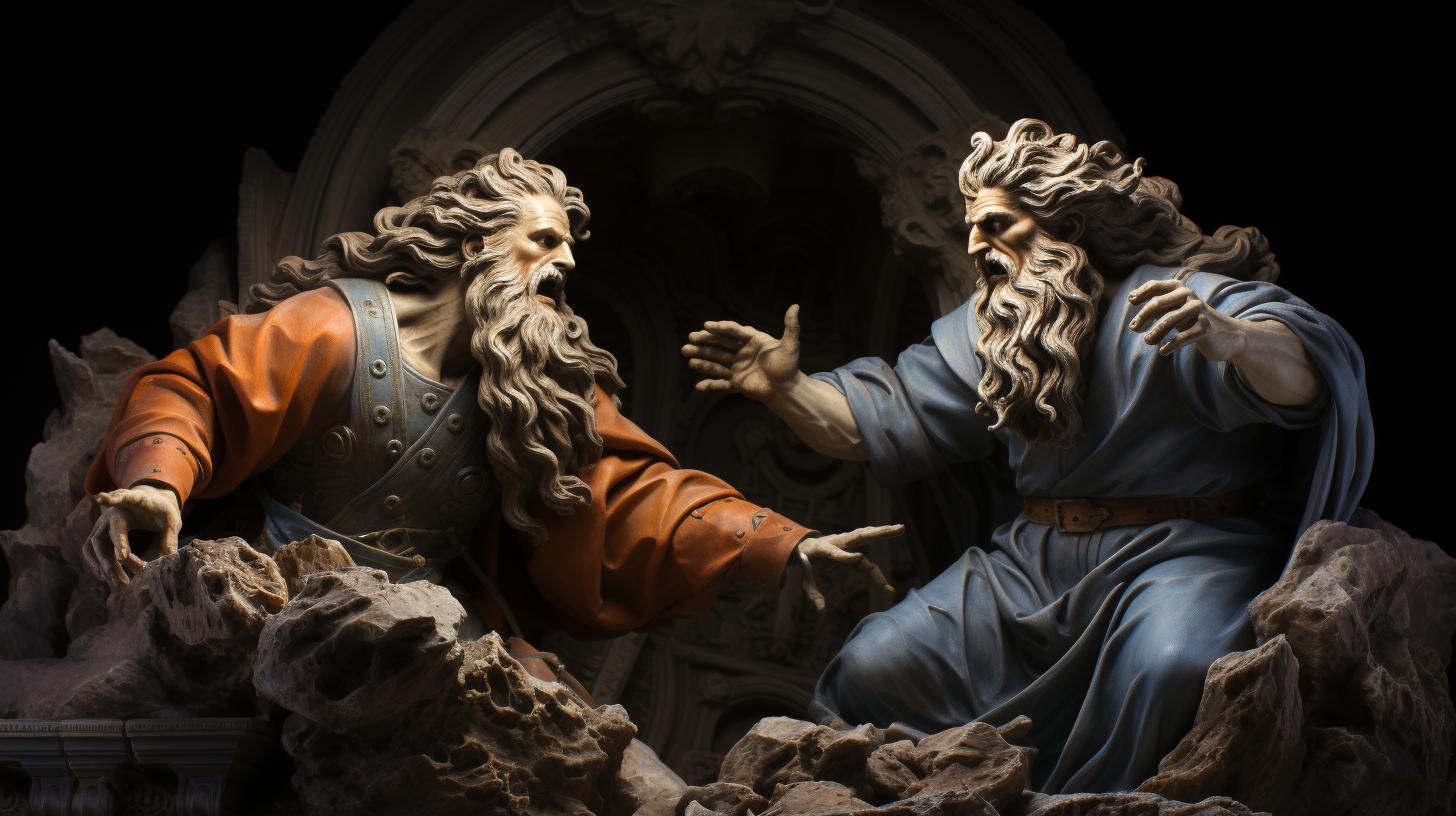What is Oceanus the god of: Exploring the Mythology of the Greek Titan
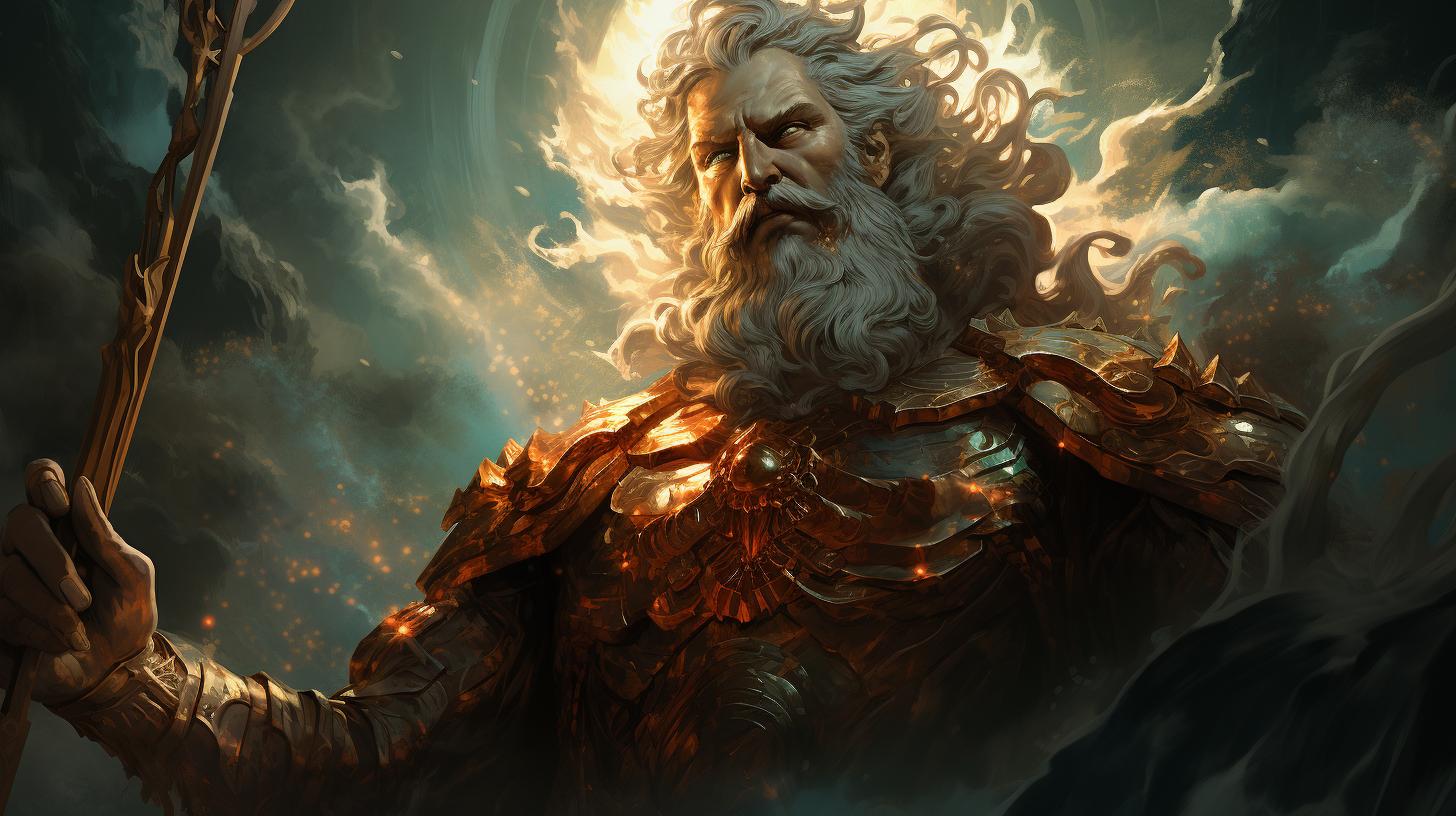
The mythology of Oceanus is a fascinating part of Greek mythology. As one of the Titans, Oceanus is known as the god of the great river Okeanos. He holds a significant role in Greek mythology and is married to his sister Tethys. Together, they have children who are gods of rivers and nymphs of springs.
Oceanus is often depicted in various forms of art and literature, showcasing his association with the ocean and water. Explore the intriguing world of Oceanus and his importance in Greek mythology.
The Mythology of Oceanus
Oceanus, a Titan in Greek mythology, has a fascinating place in the rich tapestry of ancient Greek folklore. This section delves into the background of Greek mythology and explores the intriguing saga of Oceanus and his family.
Background on Greek Mythology
Greek mythology is a treasure trove of captivating stories and larger-than-life characters. It is an ancient belief system that encompasses the legends, gods, and heroes of ancient Greece. These myths served as a way to explain natural phenomena, human experiences, and the origins of the universe.
The Greeks believed in a pantheon of gods and goddesses who reigned over various aspects of life and nature. These powerful beings possessed superhuman abilities and often interacted with humans, shaping the course of human history.
The Titans: Oceanus and his Family
The Titans were a group of divine beings who predated the Olympian gods and held immense power in the cosmos. Oceanus was born to Uranus and Gaia, according to one version of genealogy, and in another version, he was the son of Aether and Gaia.
Unlike some of his Titan siblings, Oceanus did not participate in the rebellion against his father Uranus, nor did he join the war against Zeus and the Olympian gods.
Instead, Oceanus played a different role in the Greek mythological narrative.
Oceanus’ most significant contribution comes from his association with the great river Okeanos. In Greek mythology, Okeanos was believed to encircle the Earth and serve as the source of all freshwater, including rivers, springs, and rain clouds.
This made Oceanus the revered god of the primordial water that sustains life on our planet.
Oceanus married his sister Tethys, and together they became the parents of Potamoi, the river gods, and Okeanides, the nymphs of springs and fountains.
Their extensive lineage played roles in the epic war between the gods, fighting alongside Zeus against the Titans.
In ancient Greek art, Oceanus is often depicted as a god of the Atlantic and Indian Oceans.
These representations portray him with crab-like horns, holding a snake, an oar, and a group of fish. Tethys, his wife, is often shown beside him with wings on her forehead.
While specific cults dedicated to Oceanus are not well-documented, his presence can be found in ancient texts such as the Orphic Hymns, which pay homage to various gods and goddesses.
In conclusion, Oceanus occupies a significant place in Greek mythology as the god of the great river Okeanos, the source of all freshwater on Earth.
Together with his wife Tethys, they parented the river gods and nymphs. Oceanus’ role did not involve rebelling against the gods but focused on maintaining the celestial bodies that emerged and disappeared within his waters.
Oceanus: The God of the Great River Okeanos
As we delve into Greek mythology, we encounter Oceanus, the god associated with the majestic river Okeanos. Let’s explore the origins and genealogy of Oceanus, as well as his significant role in Greek mythology.
Origins and Genealogy of Oceanus
Oceanus is believed to be the son of Uranos (the sky) and Gaia (the earth), according to one version of his genealogy. Another version suggests that he is the son of Aether (the upper atmosphere) and Gaia. Regardless of his exact parentage, Oceanus is classified as one of the powerful Titans, the divine beings preceding the Olympian gods in Greek mythology.
Oceanus and his Role in Greek Mythology
Oceanus plays a unique and influential role in Greek mythology. Unlike his fellow Titans, Oceanus does not take part in the rebellion against his father or join the war against Zeus and the Olympian gods.
Instead, he presides over the great river Okeanos, which encircles the Earth and serves as the primary source of all freshwater on our planet. This includes rivers, springs, and rain clouds, symbolizing his dominion over the elemental forces of water.
In Greek art and literature, Oceanus is often depicted as a god of the sea, specifically the Atlantic and Indian Oceans. These artistic representations show him with crab-like horns, holding a serpent, an oar, and a group of fish.
Accompanying him is his wife, Tethys, depicted with wings on her forehead.
Oceanus is also renowned for his extensive offspring. His children include the Potamoi, gods of the rivers, and the Okeanides, nymphs associated with springs and fountains.
During the war between the Titans and the Olympians, Oceanus’ children sided with Zeus, emphasizing his connection to the new divine order.
Although specific cults dedicated solely to Oceanus are not well-documented, his presence can be found in ancient texts like the Orphic Hymns.
He is often depicted with a fish tail, a human torso, and horns on his head. Portrayed holding a scepter and riding a sea creature, Oceanus represents the cosmic forces under his dominion.
In conclusion, Oceanus personifies the mythological god of the grand river Okeanos, serving as the primal source of all freshwater on Earth. With his wife Tethys, they bear children who contribute to the divine pantheon.
While he remains neutral in the Olympian-Titan conflict, Oceanus symbolizes the eternal flow and regulation of celestial bodies emerging and vanishing within his aquatic realm.
Oceanus’ Relationship with Tethys
Oceanus, the god of the great river Okeanos, is intimately connected with his wife Tethys in Greek mythology. Their divine union plays a significant role in understanding the nature of Oceanus and his place in the pantheon.
Let’s explore the marriage of Oceanus and Tethys and delve into the divine children they brought into existence.
The Marriage of Oceanus and Tethys
Oceanus and Tethys, both Titans, entered a sacred bond of matrimony. Their union represented the harmonious union of the waters, as Oceanus embodied the vast ocean and Tethys personified the nourishing springs and fountains.
Their divine marriage symbolized the interconnectedness and balance of water sources on Earth.
The Children of Oceanus and Tethys
To Oceanus and Tethys, several notable offspring were born, each holding their own divine attributes. Known as the Potamoi, the river gods, they personified the various rivers and streams across the land.
They were not only responsible for the physical manifestations of these water bodies but also possessed the power to regulate their flow and influence their life-giving properties.
Additionally, the Okeanides, the nymphs of the springs and fountains, were children of Oceanus and Tethys. They adorned the landscapes with their ethereal beauty and presided over the abundant water sources found on Earth.
These nymphs were often revered as protectors of the waters, embodying the life-giving and healing qualities associated with springs and fountains.
The children of Oceanus and Tethys played essential roles in Greek mythology, actively participating in the events that unfolded between the Titans and the Olympian gods. Their presence in ancient tales and writings highlights their significance in the broader narrative of Greek mythology.
In conclusion, the divine marriage between Oceanus and Tethys symbolizes the union of water sources, showcasing the balance and interconnectedness of rivers, springs, and fountains. Their children, the Potamoi and Okeanides, embody the diverse manifestations of water on Earth and perform crucial roles within Greek mythology.
Exploring the relationship between Oceanus and Tethys offers a deeper understanding of the significance of water in ancient Greek culture and mythology.
Depictions of Oceanus in Art and Literature
Depictions of Oceanus in art and literature provide us with fascinating insights into the portrayal of this mythological figure. From Hellenistic mosaics to Greek and Roman literature, Oceanus has been represented in various forms, showcasing his importance in ancient culture.
Oceanus in Hellenistic Mosaics
In Hellenistic mosaics, Oceanus is often depicted as the god of the Atlantic and Indian Oceans. These intricate artworks showcase his divine role as a sea deity, featuring him with crab horns, holding a serpent, an oar, and a group of fishes.
Alongside him, his wife Tethys is often portrayed with wings on her forehead.
Oceanus in Greek and Roman Literature
References to Oceanus can be found in numerous Greek and Roman literary works, enhancing his prominence in the ancient world. Texts such as the Orphic Hymns mention Oceanus, while fragments of other poems highlight his role as the father of gods or progenitor of all things.
His representation in literature adds depth to his character and aids in our understanding of his role in mythology.
Through the depiction of Oceanus in Hellenistic mosaics and his presence in Greek and Roman literature, we gain valuable insights into the artistic and literary interpretations of this deity.
These portrayals further emphasize his significance as the god of the oceans and contribute to our appreciation of his place in ancient culture.
Oceanus in Greek Religious Practices
The god Oceanus held significant importance in the religious practices of ancient Greece. Let’s explore the presence of Oceanus in ancient cults and the references to him in ancient texts.
Presence of Oceanus in Ancient Cults
Oceanus, as the god of the great river Okeanos, was revered in various ancient cults.
Worshipers recognized his power and influence over water sources, attributing him as the provider and guardian of freshwater on Earth. In these cults, rituals and ceremonies were performed to honor Oceanus, expressing gratitude for the life-sustaining properties of water and seeking his blessings for fertility, agriculture, and abundance.
Devotees believed that by appeasing Oceanus, they could ensure a harmonious balance in the natural world and maintain the essential flow of water in rivers, springs, and aquifers. Statues and altars dedicated to Oceanus were erected in sanctuaries across ancient Greece, serving as focal points for worship and offerings.
References to Oceanus in Ancient Texts
The presence of Oceanus extends beyond the realm of religious cults, as he is mentioned in various ancient Greek texts. Poets, philosophers, and mythographers often referenced Oceanus to emphasize his significance in the cosmological context.
In the works of Hesiod, for example, Oceanus is seen as the primary deity responsible for regulating the celestial bodies that emerge and disappear within his waters. This portrayal highlights his role as a divine entity controlling the cyclical nature of the heavens.
Additionally, Oceanus is alluded to in ancient narratives, myths, and genealogies, connecting him to the origins of the gods and the fundamental essence of creation. Some texts even attribute Oceanus as the progenitor of not only divine beings but all things in existence, underscoring his primordial status.
Through these textual references, the importance and influence of Oceanus in Greek mythology and religious beliefs are reinforced, solidifying his position as a prominent figure in the ancient Greek cosmogony.
- The god Oceanus played a vital role in ancient Greek religious practices.
- Worshipers recognized Oceanus as the provider and guardian of freshwater on Earth.
- Rituals and ceremonies were conducted in cults dedicated to Oceanus to seek blessings for fertility and abundance.
- Statues and altars dedicated to Oceanus were erected in various sanctuaries across ancient Greece.
- Ancient texts, including the works of Hesiod, allude to Oceanus’ role in regulating celestial bodies and his connection to the origins of the gods.
Oceanus in Popular Culture and Modern Interpretations
In contemporary art and literature, Oceanus continues to captivate and inspire creatives across various mediums.
The enduring fascination with this ancient god is evident in the numerous artistic representations and literary references that depict his presence and symbolism. Here are some notable examples:
Oceanus in Contemporary Art and Literature
In the world of art, Oceanus often appears as a prominent figure in modern interpretations of Greek mythology.
From paintings to sculptures, his aquatic characteristics and mythical significance are often highlighted. Artists strive to convey the essence of his formidable presence, incorporating elements such as his sea-themed attributes and family connections.
In literature, Oceanus serves as a muse for countless authors who explore his enigmatic nature. His role as the god of the great rivers and the source of all freshwater on Earth sparks themes of abundance, life-giving forces, and the cyclical nature of existence.
Some contemporary novels and poems beautifully incorporate Oceanus’ influence to evoke a sense of primordial power and balance within the natural world.
Oceanus’ Influence in Modern Mythology
Oceanus’ impact extends beyond the realms of art and literature, permeating modern mythology and popular culture. In various forms of media, references to this Titan god offer a rich tapestry of interpretation and storytelling.
From movies to video games, Oceanus often represents the embodiment of the vastness and mysteriousness of the ocean.
In contemporary mythology, Oceanus’ association with water and his role as a progenitor figure evoke themes of origin, creation, and the interconnectedness of all life.
His symbolic presence is often used to explore humanity’s relationship with the environment and the delicate balance between human civilization and the natural world.
Furthermore, Oceanus’ depiction in popular culture serves as a reminder of the enduring power of ancient myths and their ability to resonate with modern audiences.
Through these interpretations, his story and symbolism continue to thrive, inviting new generations to explore the depths of Greek mythology and contemplate the mysteries of the sea.
Overall, Oceanus’ presence in contemporary art, literature, and modern mythology showcases the timeless allure of this Titan god.
His influence continues to inspire and captivate through varied interpretations, offering a deep connection to the natural forces that shape our world and our imagination.
- Artists continue to depict Oceanus in various forms, emphasizing his aquatic attributes and connections with familial relationships.
- Literature often employs Oceanus as a symbol of abundance and life-giving forces, exploring themes of primordial power and natural balance.
- In popular culture, Oceanus is frequently portrayed in movies, video games, and other media as a representation of the vastness and mysteriousness of the ocean.
- Modern mythology incorporates Oceanus’ symbolism to explore themes of origin, creation, and humanity’s relationship with the environment.
- Oceanus’ enduring presence in popular culture serves as a reminder of the timeless power of ancient myths and their ability to resonate with contemporary audiences.
.











